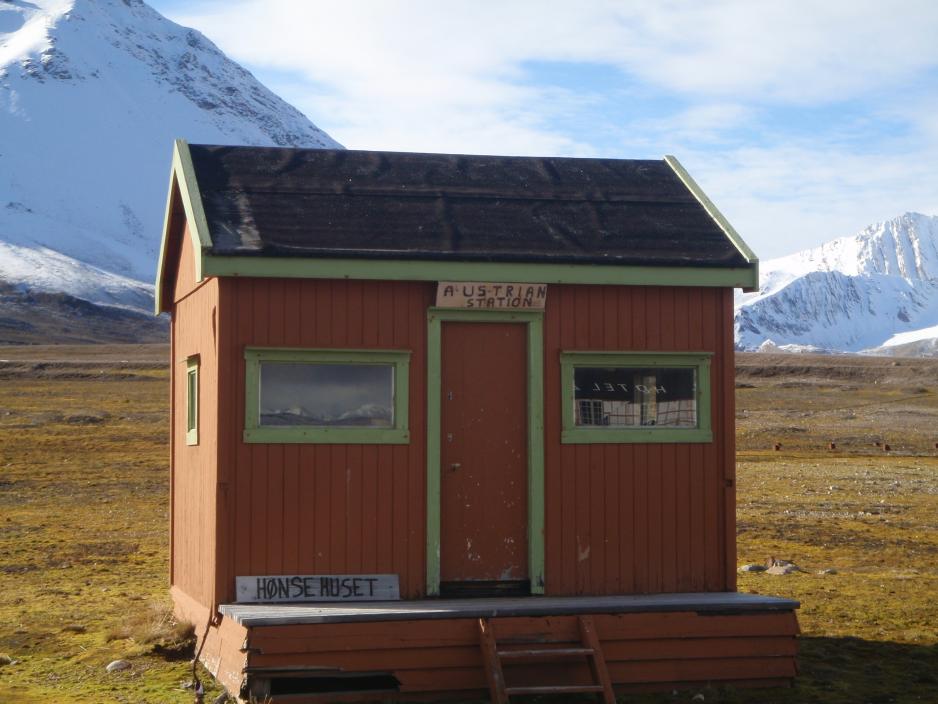Austrian Polar Research Institute Celebrates 5th Anniversary

The Austrian Polar Research Institute (APRI) recently celebrated its fifth anniversary in Vienna. Connecting various disciplines, the institute has big plans for international collaborations.
The Austrian Polar Research Institute (APRI) recently celebrated its fifth anniversary in Vienna. Connecting various disciplines, the institute has big plans for international collaborations.
Why Arctic research in Austria?
APRI was born out of the ‘Payer-Weyprecht Society’, established in 1993 to discuss polar issues in general and more so from a non-scientific perspective. The name reminds of the long history of Austrian polar research, starting with the Austro-Hungarian North Pole expedition in the 19th century.
The first International Polar Year (IPY) in 1882 can be attributed to the Austro-Hungarian polar explorer Karl Weyprecht, but it was only the 2007 IPY that catalysed the attempt for a joint scientific programme in Austria. "While it didn’t receive funding, it brought the researchers together. A year later, they started working on APRI", says Andreas Richter, the institute’s director of finance and Head of the University of Vienna’s Terrestrial Ecosystem Research Division. APRI was eventually inaugurated in 2013.
Combining natural and social sciences
According to Richter, “what makes the institute stand out is the great number of disciplines it covers, including both natural and social sciences and ranging from polar ecology, to climate and cryosphere, as well as socio-cultural systems.” The institute currently comprises around 60 scientists organized in 17 research groups and consolidates the previously fragmented polar research in Austria.
Eyes set on a joint research station in Greenland
The future might hold a stronger cooperation with Denmark and Greenland for the extension and operation of the Sermilik research station in southeast Greenland, which has a long history of collecting data.
The plan is to add a new building with room for ten people and make the other buildings of the station suitable for winter operation, in addition to a scientific upgrade of the instruments and safety adaptations.
The future research program in Greenland might focus on the Arctic water cycle in a changing climate and the effects on the local population and the ecosystem. This would allow APRI groups from all disciplines, including social sciences, to use the station for their research.
"By positioning ‘APRI’ as a brand, the Austrian polar research can gain momentum and attract funding," according to Jason Box, professor in glaciology at the Geological Survey of Denmark and Greenland, who was invited as keynote speaker at the celebration. "This way, the station will catalyse more international cooperation and attract more resources," he says to HNN.
Global outreach
Regionally, APRI put down in writing its desire for a stronger cooperation with researchers in neighbouring countries through the letter of intent in 2014, in which Austria, Poland and the Czech Republic proposed a Central European Polar Partnership (CEPP). "We need global input to develop the Austrian polar research programme," says Peter Schweitzer, the new director of APRI.
The goals of APRI are first and foremost to represent Austrian Polar research in international polar organisations and research projects and thereby increase its visibility.
It further aims at building a national information hub, strengthen the cooperation and synergies within Austria and promote the dialogue with the public.
The Arctic and Austria linked through climate change
As a keynote speaker at the anniversary celebration, Box raised the question how skiing can inspire us to study glaciers and climate change. His stay in Austria as a teenager, which came with the "mandatory" skiing experience on glaciers, made him appreciate the environment. However, when he witnessed people manually painting the top of the trees to protect them from the acid raid, he felt compelled to look into environmental issues and choose a career that combined his love for snow and for skiing.
He further explained: "Our relationship with nature is not sustainable. We treat it like a commodity, but we need to get smarter about that relationship." Climate change has already resulted in more extreme weather events and sea level rise. The Arctic contributes to two thirds of the sea level expansion. The economic and cultural ripple effects are that there will be more migration, not less. "To understand the change beyond pure assessment, we have to think non-lineally, which is unusual for many scientists," Box went on.
Still not the right communication
The question is also whether scientific work in itself manages to have any real impact. "As researchers, we risk being labelled an ‘activist’ if we try to do something else than publish as many journal articles as we can, but we also care because of our kids," Box adds. The social media bubbles, in which research findings are shared, often do not include the people that researchers want to address.
